- About UKCPN
- Focus areas
-
-
Featured challenge
-
Other focus areas
-
-
-
- Funding & opportunities
- News & insights
- Events
- Impact
Hear from other thought leaders on sustainable plastics who attended the event:
A UKRI challenge delivered by Innovate UK, SSPP’s aim is to establish the UK as a leading innovator in sustainable plastics, driving cleaner growth across the supply chain and delivering a significant reduction in plastic waste entering the environment by 2025. Its work directly contributes to the delivery of the 2025 UK Plastics Pact targets, funding research and innovation to reduce unnecessary plastic, support greater reuse and refill, and increase recycling.
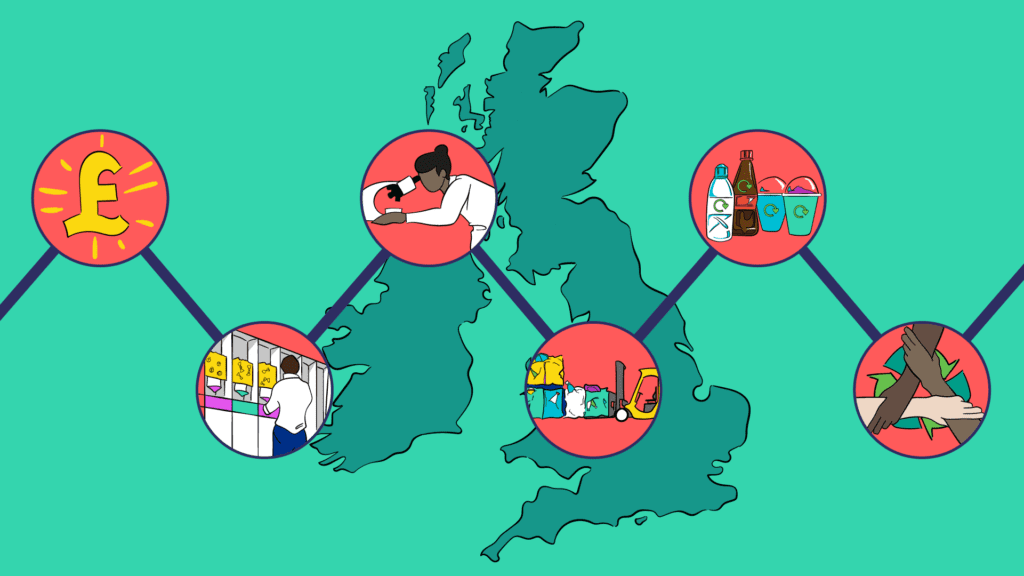
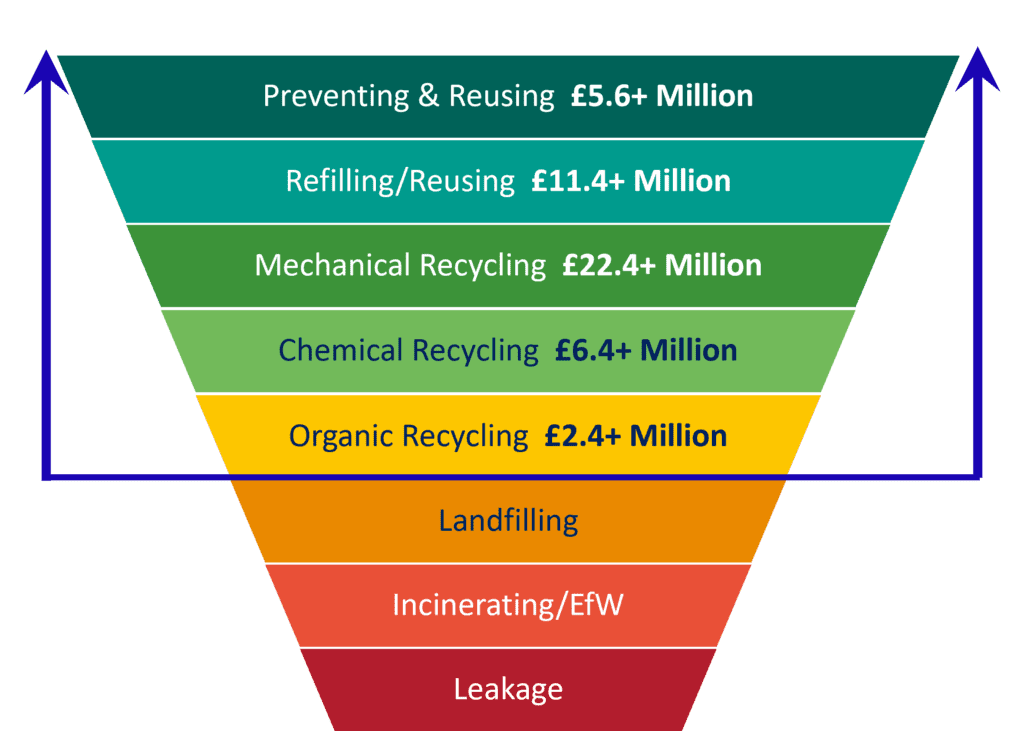
Helping to inspire and inform the wider sustainable plastics community by providing important insights and knowledge to drive progress and feed into future business strategies and policy thinking.
With eight funding competitions completed, the SSPP Challenge has a balanced portfolio of projects sitting across the waste hierarchy that reflect the multiple interventions needed to make plastic packaging fit for a sustainable future, including:
These projects are delivering impact in the real world; exploiting the opportunities offered by novel materials to eliminate single use plastics, supporting design and processing innovations that reduce the use of plastics, tackling the barriers to mainstreaming reuse and refill, and enabling new recycling processes and infrastructure to be developed at scale.
Mainstreaming reuse and refill models is recognised as one of the tougher challenges to crack, with a number of barriers including price and optimisation in the retail environment, consumer engagement, logistics, tracking, and cleaning. SSPP is funding number of projects – from major in-store trials to packaging tracking technology and consumer research – to move this agenda forward.
With the UK Plastic Packaging Tax driving up recycled content, the SSPP Challenge has funded a number of potential breakthroughs in high quality food-grade plastics recycling, including the world’s first mechanical recycling plant to produce food-grade PP, which is nearing completion thanks to a consortium project led by plastics recycling experts Berry Circular Polymers.
Often called the final frontier of plastics recycling, films and flexibles are under the spotlight like never before. SSPP is funding innovation at every stage of this packaging format’s life cycle, from design through to material innovation, kerbside collection, and new recycling solutions, including an award-winning cleaning process to produce food-grade recyclate from polyolefin film waste.
The role of remote sensing in shaping marine plastic litter policies and innovations
Remote sensing has an increasingly important role to play in identifying and monitoring plastic litter and pollution. SSPP has funded the Plastic Litter & Remote Sensing Discovery Programme to carry out a scoping study to identify what actions and support are needed to ensure that these technologies can contribute to tackling the challenge of plastic pollution.
Plastics-to-plastics chemical recycling
The chemical recycling of plastics is increasingly coming under the spotlight and these articles explore the future role and value of this family of technologies.

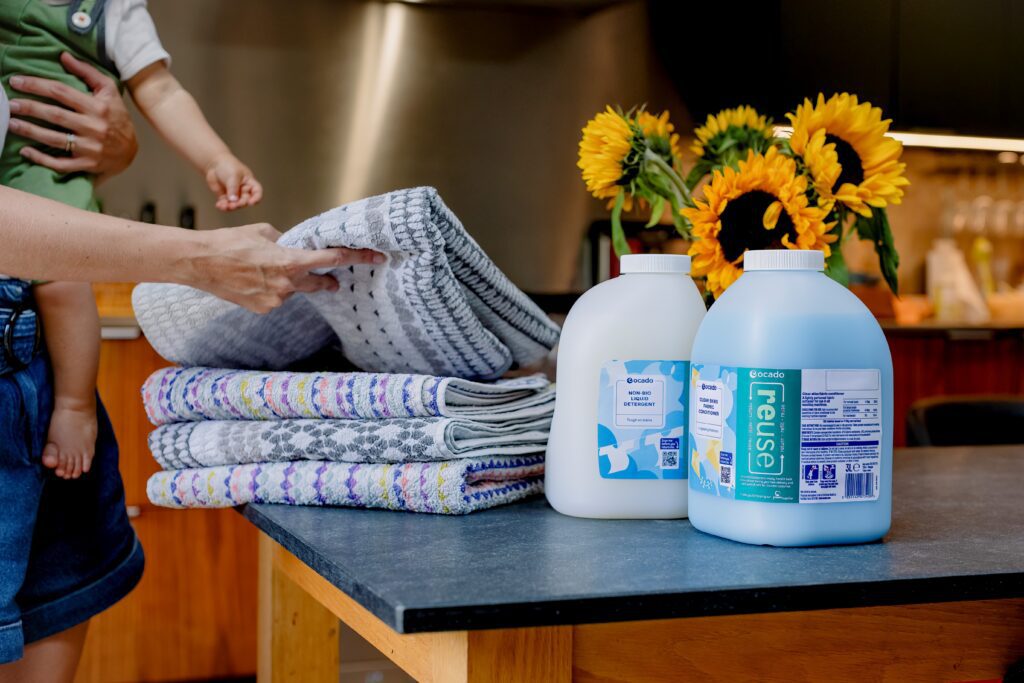
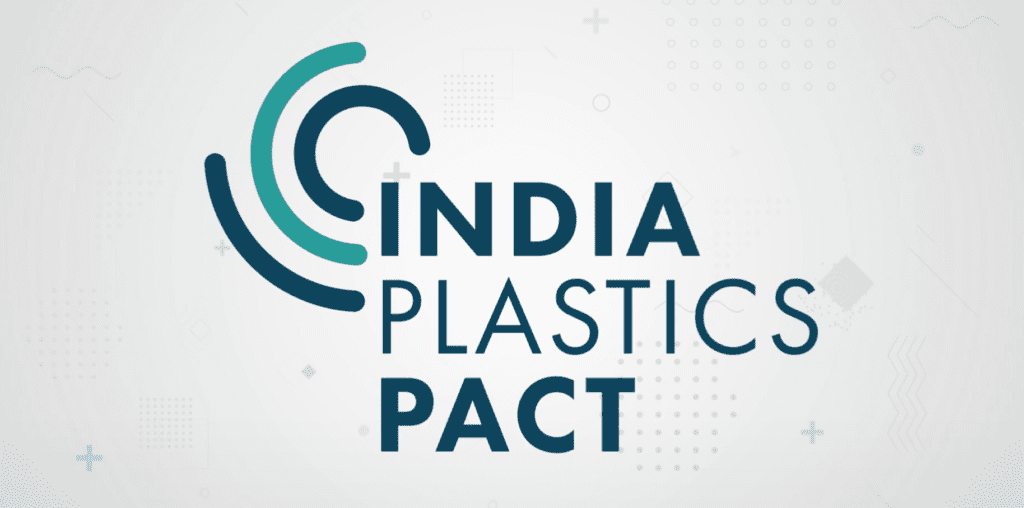
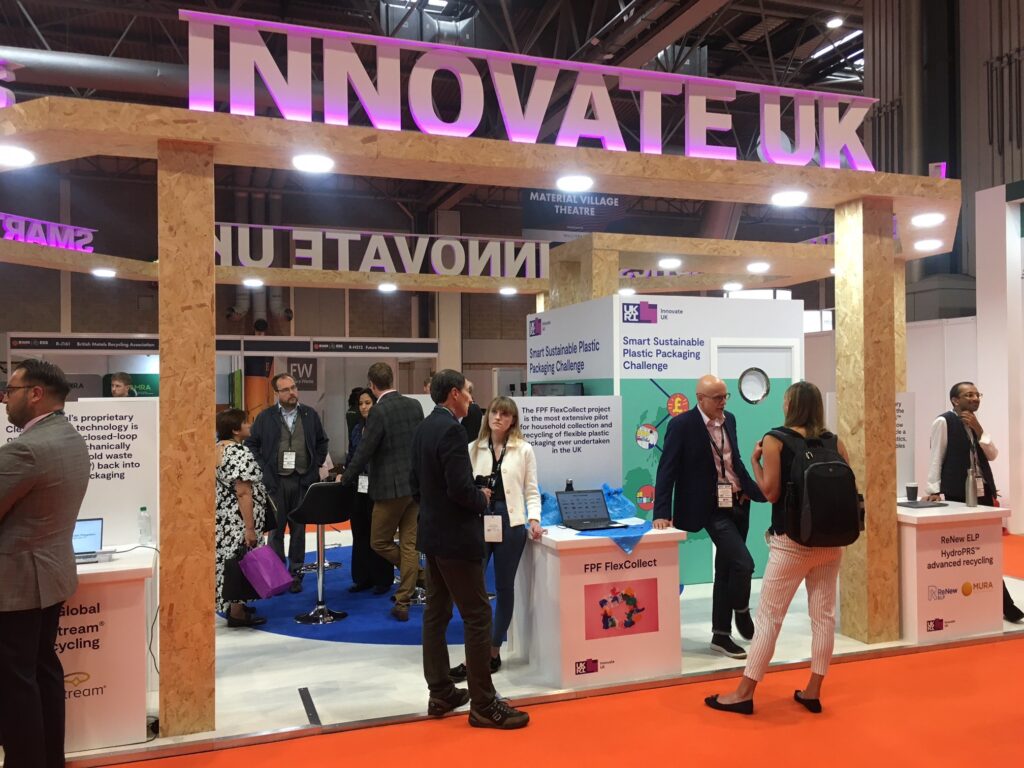
From seaweed-based coatings and edible film to the latest breakthroughs in plastic-to-plastic chemical recycling, read about some of the ground-breaking projects that SSPP is
funding.


